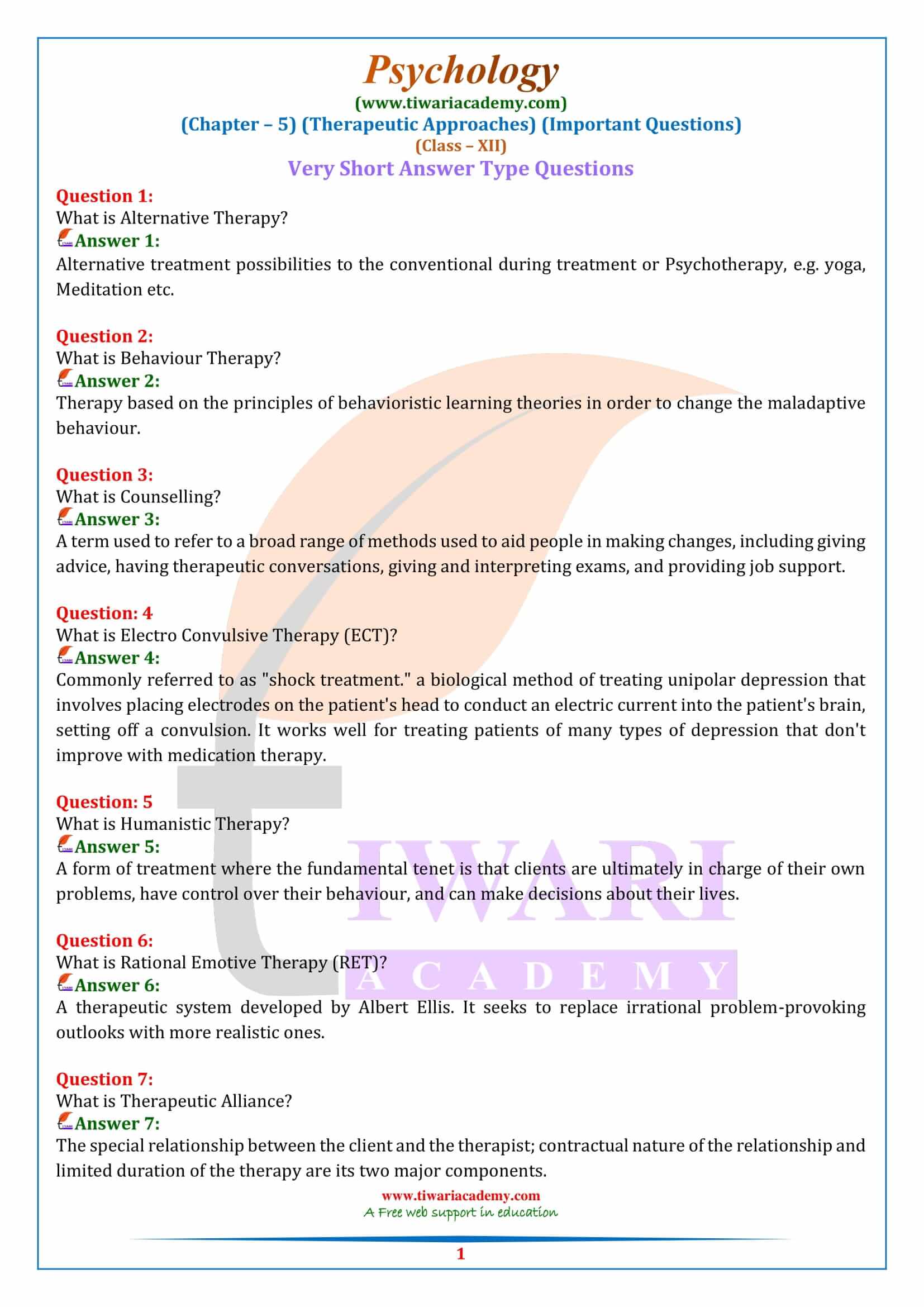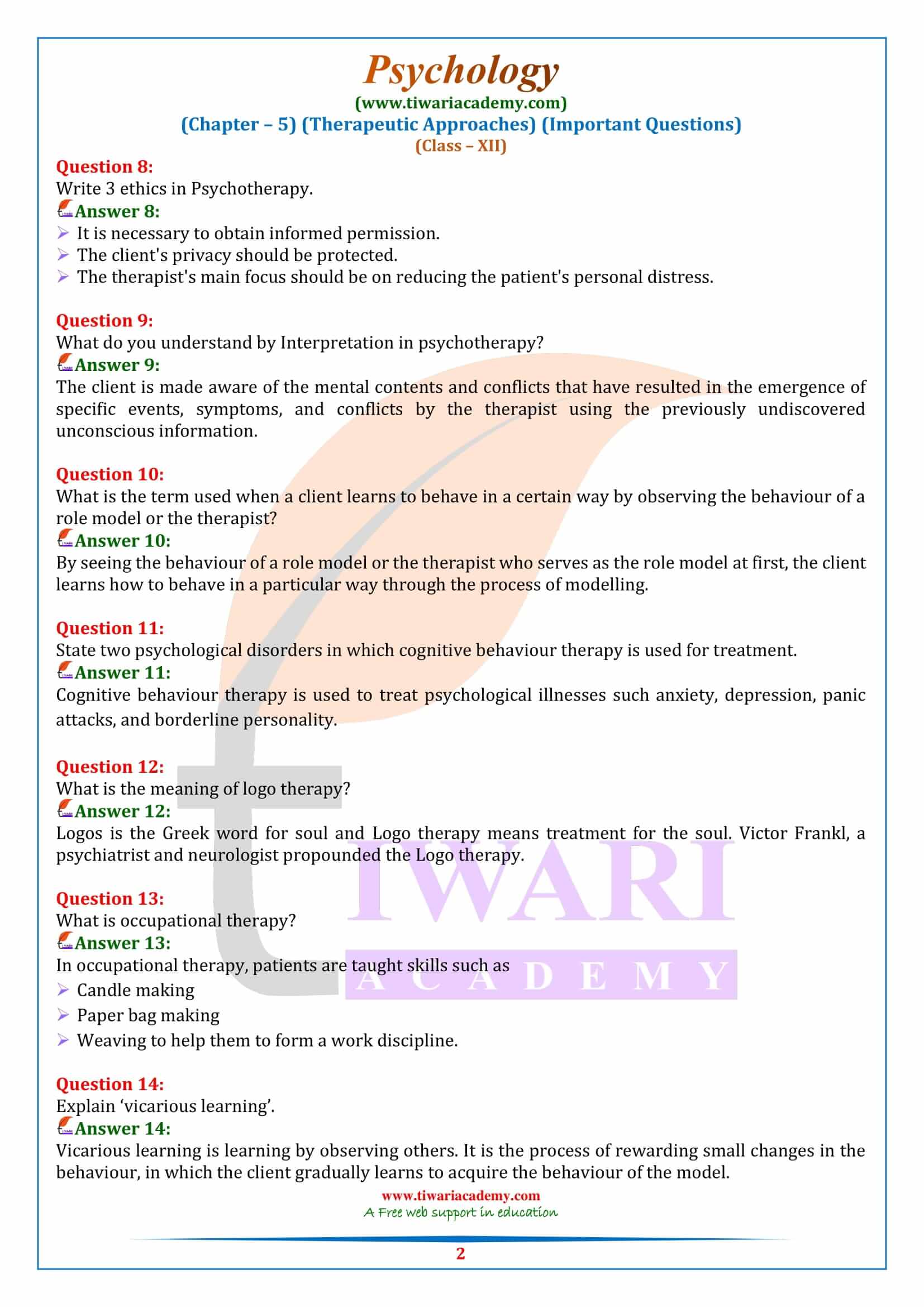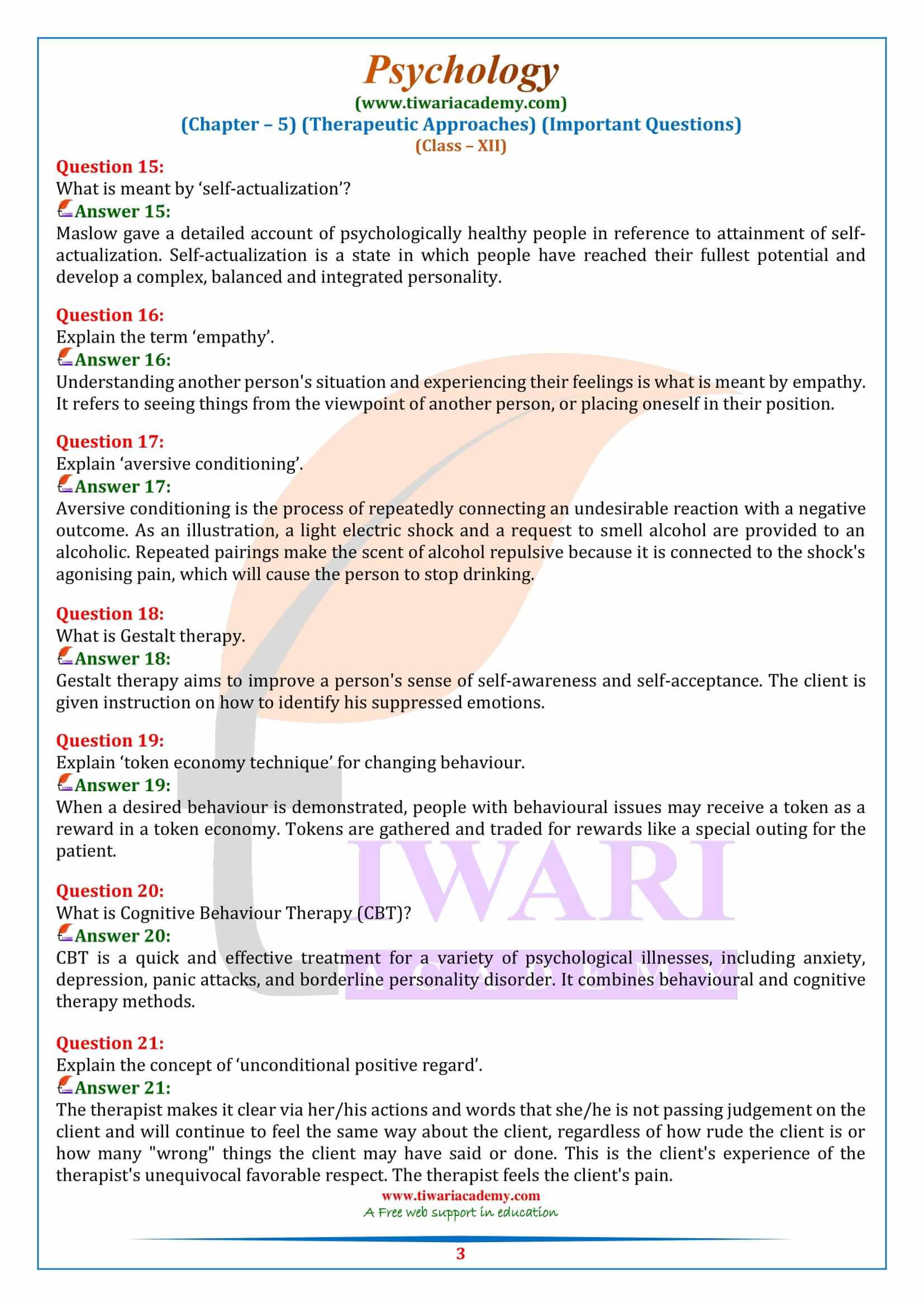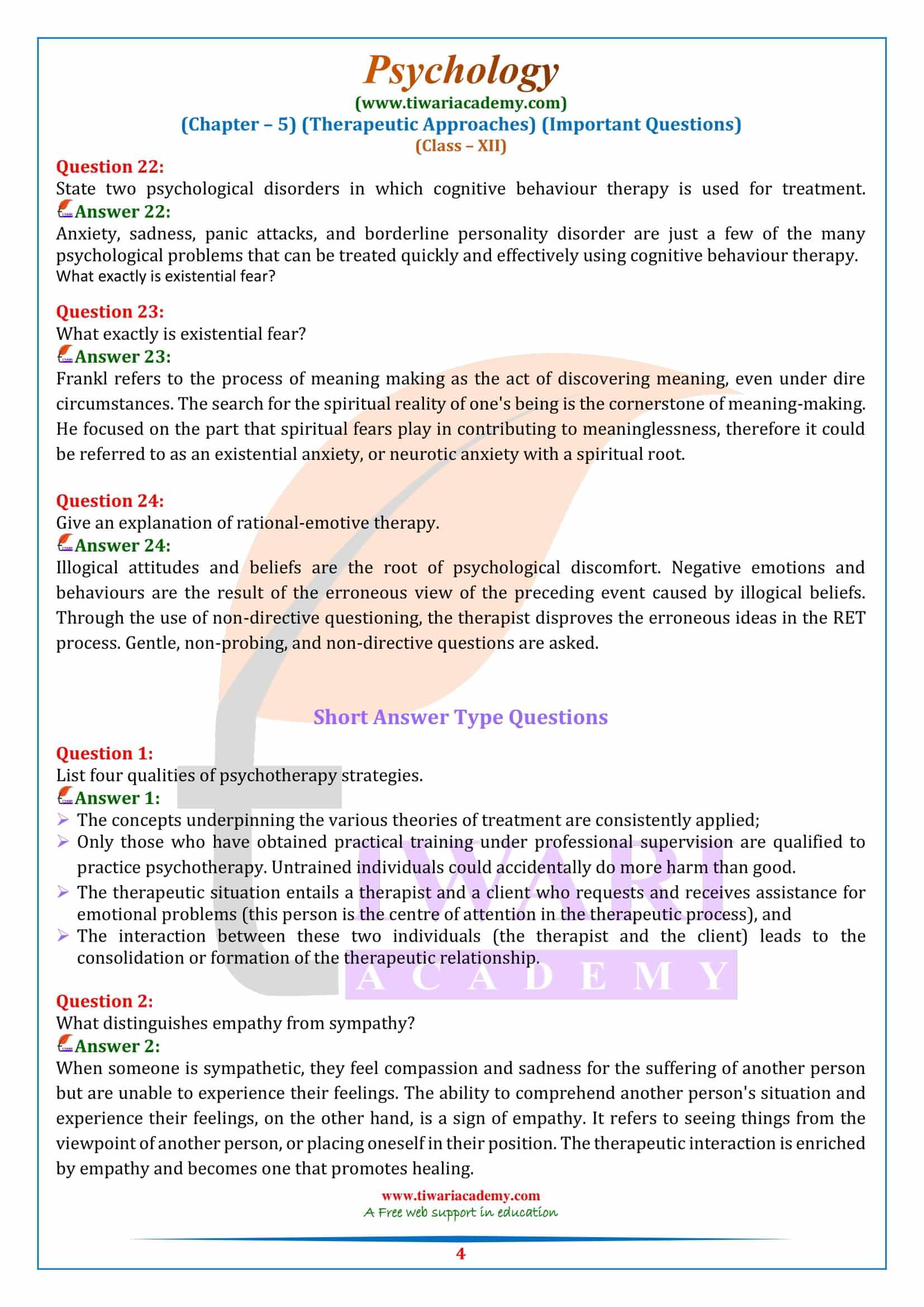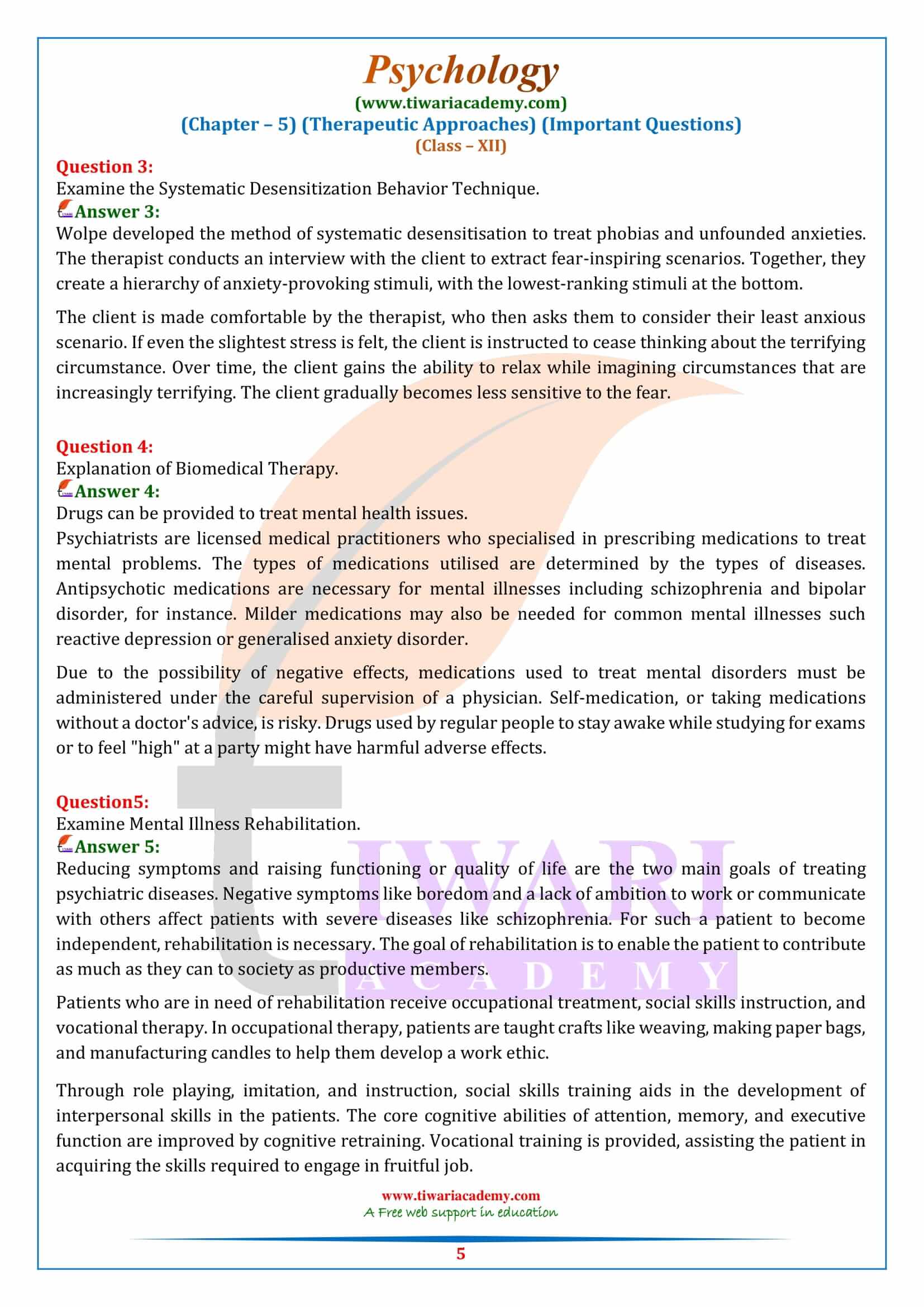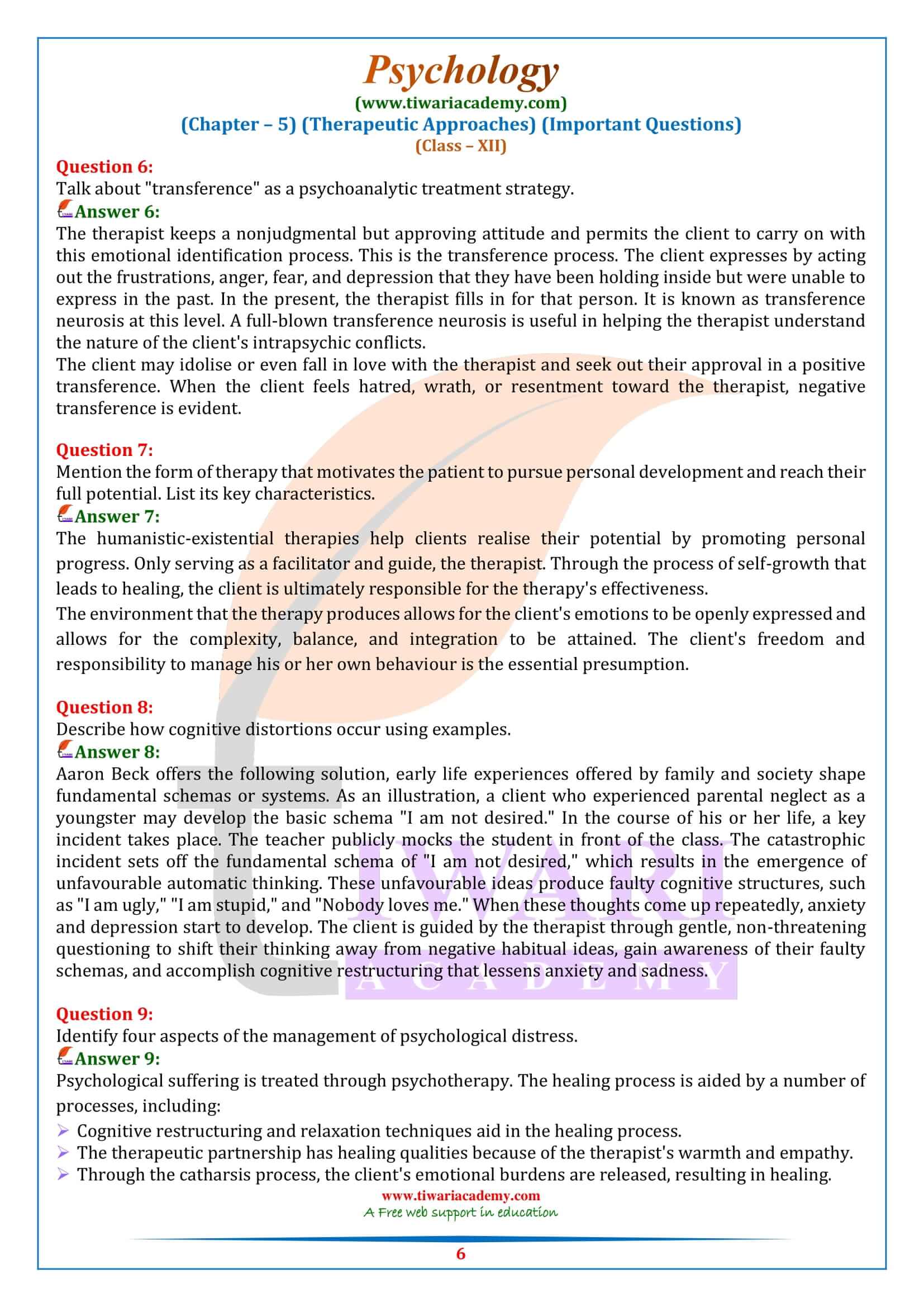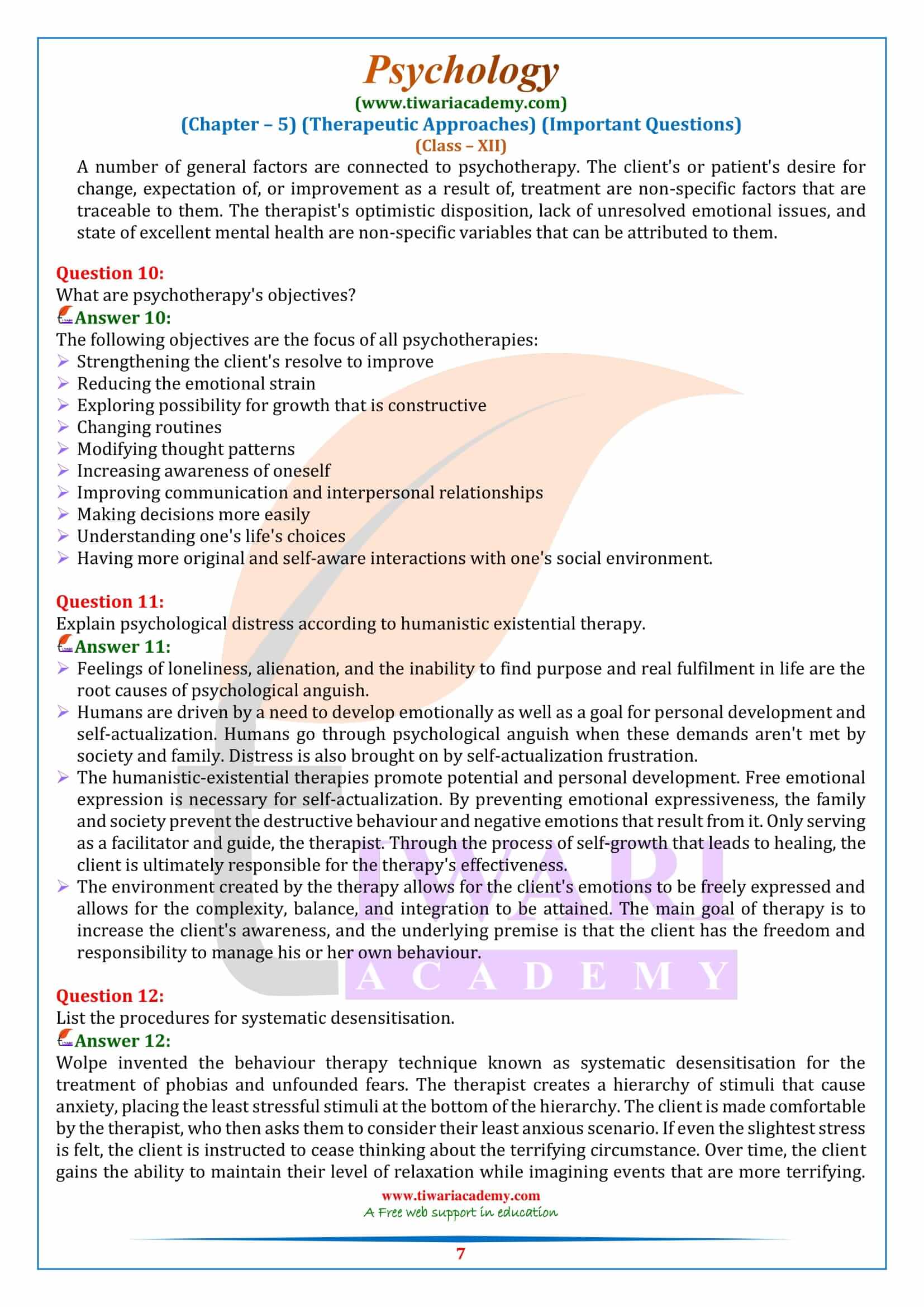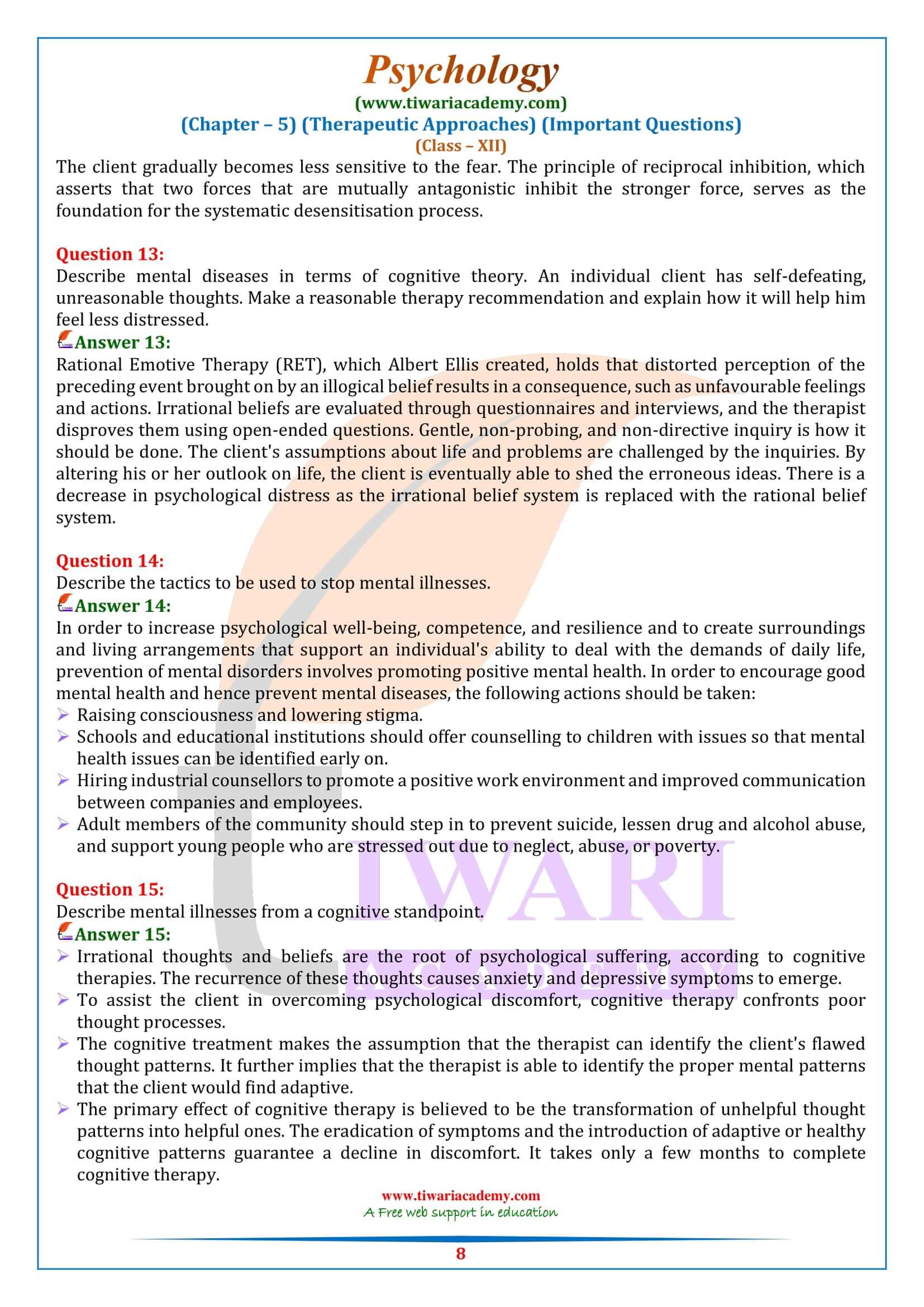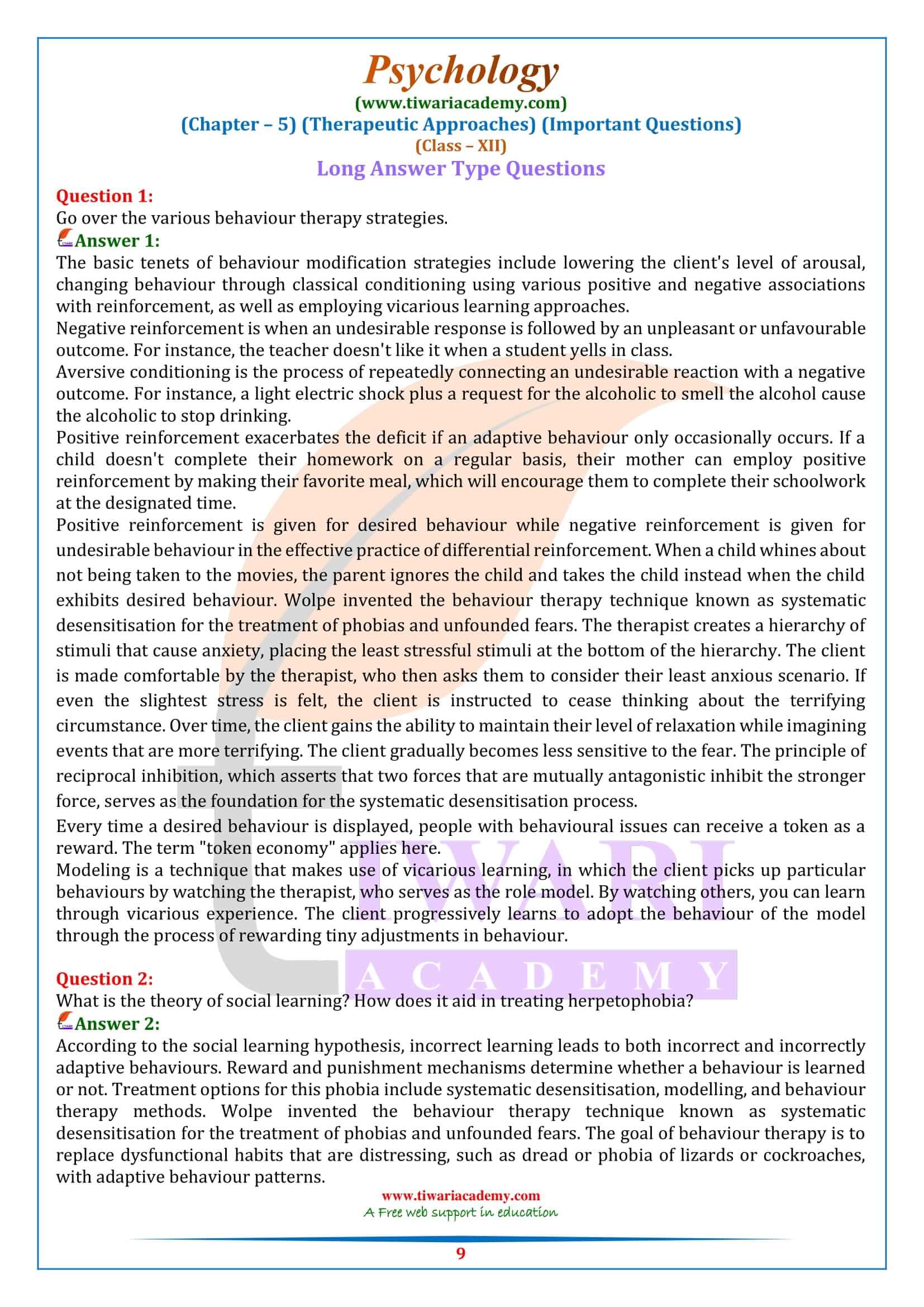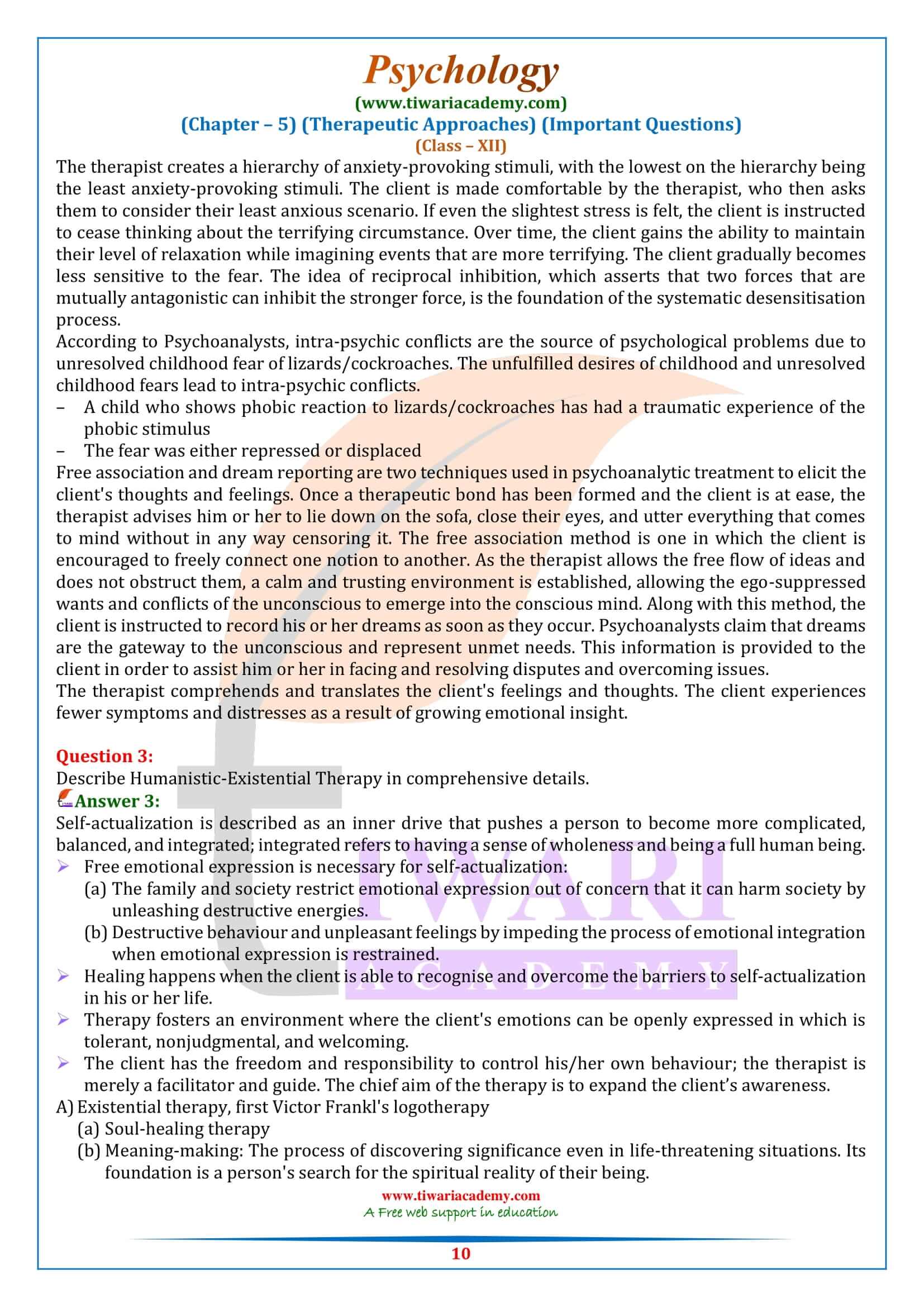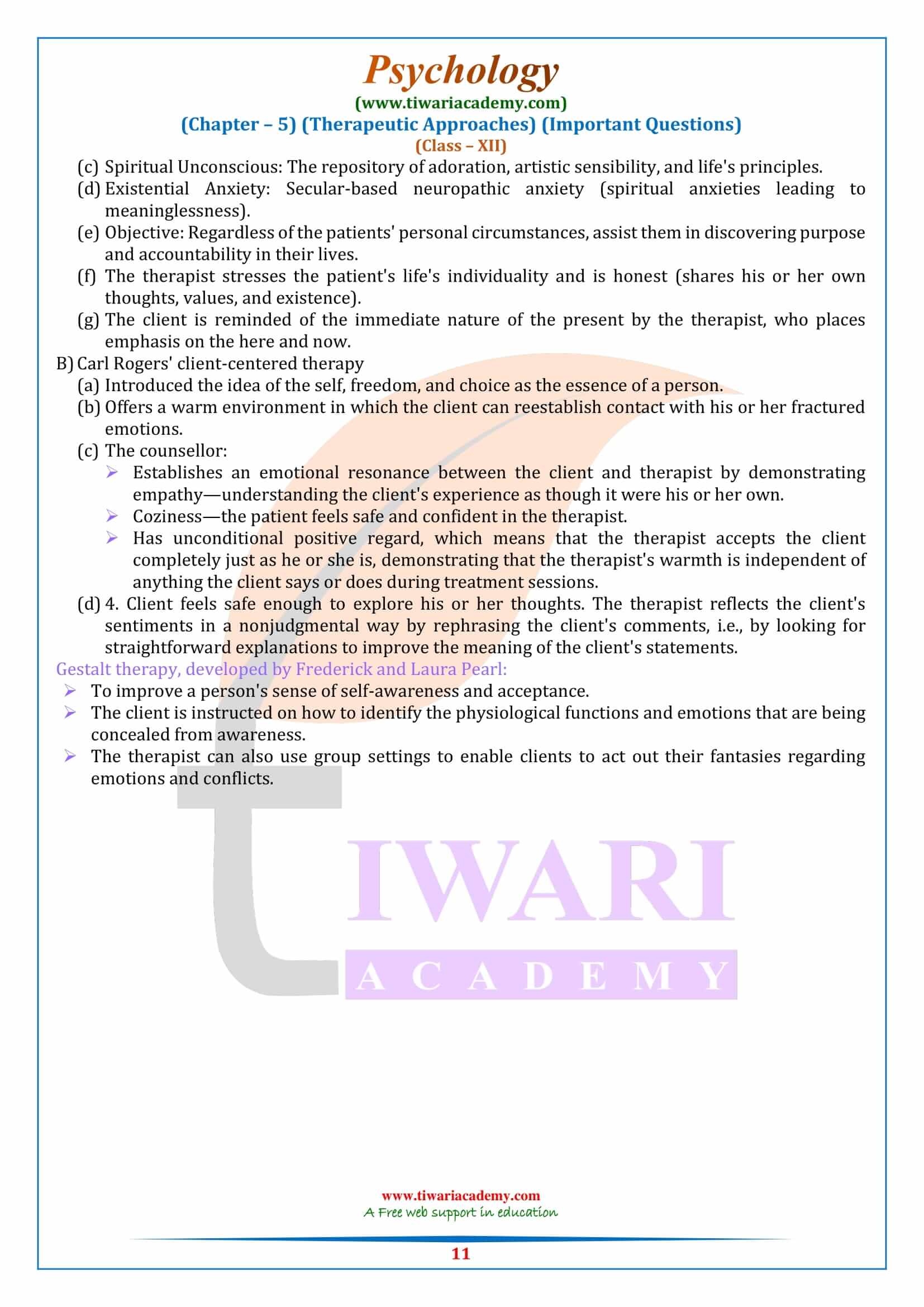Class 12 Psychology Chapter 5 Important Questions of Therapeutic Approaches with complete explanation for session 2025-26. Class 12 Psychology Chapter 5 Extra Questions help the students to prepare the entire chapter thoroughly and help to score better in exams.
Class 12 Psychology Chapter 5 Important Questions
Class 12 Psychology Chapter 5 Extra Questions Answers
What is Electro Convulsive Therapy (ECT)?
Commonly referred to as “shock treatment.” a biological method of treating unipolar depression that involves placing electrodes on the patient’s head to conduct an electric current into the patient’s brain, setting off a convulsion. It works well for treating patients of many types of depression that don’t improve with medication therapy.
What is Humanistic Therapy?
A form of treatment where the fundamental tenet is that clients are ultimately in charge of their own problems, have control over their behaviour, and can make decisions about their lives.
What is Behaviour Therapy?
Therapy based on the principles of behavioristic learning theories in order to change the maladaptive behaviour.
What is meant by ‘self-actualization’?
Maslow gave a detailed account of psychologically healthy people in reference to attainment of self-actualization. Self-actualization is a state in which people have reached their fullest potential and develop a complex, balanced and integrated personality.
Explain ‘vicarious learning’.
Vicarious learning is learning by observing others. It is the process of rewarding small changes in the behaviour, in which the client gradually learns to acquire the behaviour of the model.
Explain the term ‘empathy’.
Understanding another person’s situation and experiencing their feelings is what is meant by empathy. It refers to seeing things from the viewpoint of another person, or placing oneself in their position.
Explain the concept of ‘unconditional positive regard’.
The therapist makes it clear via her/his actions and words that she/he is not passing judgement on the client and will continue to feel the same way about the client, regardless of how rude the client is or how many “wrong” things the client may have said or done. This is the client’s experience of the therapist’s unequivocal favorable respect. The therapist feels the client’s pain.
What exactly is existential fear?
Frankl refers to the process of meaning making as the act of discovering meaning, even under dire circumstances. The search for the spiritual reality of one’s being is the cornerstone of meaning-making. He focused on the part that spiritual fears play in contributing to meaninglessness, therefore it could be referred to as an existential anxiety, or neurotic anxiety with a spiritual root.
Give an explanation of rational-emotive therapy.
Illogical attitudes and beliefs are the root of psychological discomfort. Negative emotions and behaviours are the result of the erroneous view of the preceding event caused by illogical beliefs. Through the use of non-directive questioning, the therapist disproves the erroneous ideas in the RET process. Gentle, non-probing, and non-directive questions are asked.
What distinguishes empathy from sympathy?
When someone is sympathetic, they feel compassion and sadness for the suffering of another person but are unable to experience their feelings. The ability to comprehend another person’s situation and experience their feelings, on the other hand, is a sign of empathy. It refers to seeing things from the viewpoint of another person, or placing oneself in their position. The therapeutic interaction is enriched by empathy and becomes one that promotes healing.
Explanation of Biomedical Therapy.
Drugs can be provided to treat mental health issues.
Psychiatrists are licensed medical practitioners who specialised in prescribing medications to treat mental problems. The types of medications utilised are determined by the types of diseases. Antipsychotic medications are necessary for mental illnesses including schizophrenia and bipolar disorder, for instance. Milder medications may also be needed for common mental illnesses such reactive depression or generalised anxiety disorder.
Due to the possibility of negative effects, medications used to treat mental disorders must be administered under the careful supervision of a physician. Self-medication, or taking medications without a doctor’s advice, is risky. Drugs used by regular people to stay awake while studying for exams or to feel “high” at a party might have harmful adverse effects.
